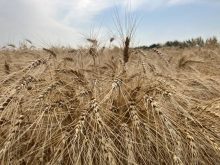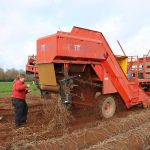Quebec’s provincial government plans an overhaul of its ag income stabilization programs among other new policy priorities for its agriculture department, following the recent Pronovost report on the future of the ag industry.
The report from the Commission sur l’avenir de l’agriculture et de l’agroalimentaire quebecois, released last month, urged a stronger focus on innovation, diversification, new product development and marketing, encouraging young people to enter the industry and tightening up ag support programs that currently don’t encourage farmers to either improve or respond to market signals.
Read Also

Pea, lentil outlooks have some positive signals – Penner
As pulse growers consider what to plant this spring, Chuck Penner of Leftfield Commodities Research said there is some optimism in the Canadian pulse market. Penner gave a presentation at the Saskatchewan Pulse Growers meeting in Swift Current on Feb. 4.
Agriculture Minister Laurent Lessard, in a release Thursday, promised a renewed focus on growth for the ag sector. Among the changes proposed are reform of income stabilization programs, using the Pronovost report as a jumping-off point for discussion, as part of an overall renewal of La Financiere agricole, the provincial ag lending and program funding agency, planned for spring 2009.
The CAAAQ, chaired by former senior provincial bureaucrat Jean Pronovost, had recommended an evolution of the Farm Income Stabilization Insurance (FISI) program into a universal support program but with tighter criteria and annual caps on compensation paid per farm.
Among the provincial ag department’s other priorities for the coming year, Lessard listed:
- establishment of a working group to seek out ways to develop alternative marketing chains that favour local products, in keeping with the government’s previously announced “Le Québec dans votre
assiette!” (Quebec on your plate) campaign; - support for the emerging organic, hothouse and ornamental horticulture sectors;
- harmonizing government operations to better support both farm operations and food processing businesses;
- finding ways to preserve agricultural-zoned land, helping encourage development of land uses complementary to local agriculture, and encouraging rural municipalities to draft land development plans; and
- bringing the federal government on board to support the province’s goals, by assuring Ottawa’s continued support for supply-managed ag sectors in World Trade Organization negotiations, as well as its support for enforcing safety of imported products and better identifying those products’ point of origin.
The province’s ag sector is being called into serious question, Lessard said Thursday, adding that the Pronovost report is unequivocal in stating that the status quo is no longer viable.














